
The regions TDChristian offers busing from are:
Additional notes: Bus transportation is included in tuition (there is no extra charge). We have 13 bus routes across the GTA. If you are new to our school, we try to adjust a route to make it work better for you.
How we see Toronto District Christian High School
Compare with:
How Toronto District Christian High School sees itself
"TDChristian is a friendly and vibrant learning community. In addition to strong math, science, and English courses, we offer dynamic theatre, music, STEM, art, tech, and athletic programs. We believe in project-based learning that integrates Christian faith and service. We offer fantastic parent-student-teacher communication and family friendly tuition, transportation included. Our brand new building expansion and many extracurriculars means even more opportunities. You belong here!"
"What makes us different is the lengths we go in getting to know each student who walks through the door. It goes beyond academics—we want to know the person. That's why we offer over 40 clubs, mixed grade homerooms, regular assemblies, and plenty of opportunities to have each student find a place in our school that's their own. As a staff, we meet weekly to discuss students who seem to be struggling academically or socially. It's truly a caring environment!"
"It's that students are known, the parent-teacher-student connections are strong and often, and that we offer so many experiences outside the classroom as well. Parents also appreciate that we are open about our Christianity. All of our staff are Christian, all of our classes are taught through the lens of Christianity, and we really believe that life is about service to our neighbours and God. On the financial side, many of the items other schools charge for, we include in the price of tuition."
"One underappreciated aspect of TDChristian are the opportunities for students to delve into the trades. Through internships and events like the Skilled Trades and Career Fair, students gain invaluable hands-on experience and exposure to various vocational paths. These avenues not only foster practical skills but also offer insight into fulfilling career options beyond traditional academic routes."
"Families may be surprised by the strong sense of belonging fostered at TDChristian High School. Beyond academic excellence, the school prioritizes creating a supportive community where every student feels valued and included. Whether through small class sizes, mentorship programs, or a variety of extracurricular activities, TDChristian ensures that students develop meaningful connections with peers and faculty."



Our competitive sports teams pursue athletics in quality facilities.
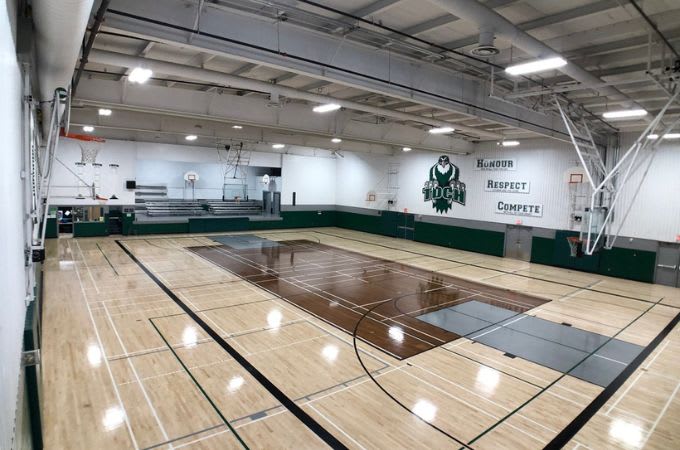
The gym
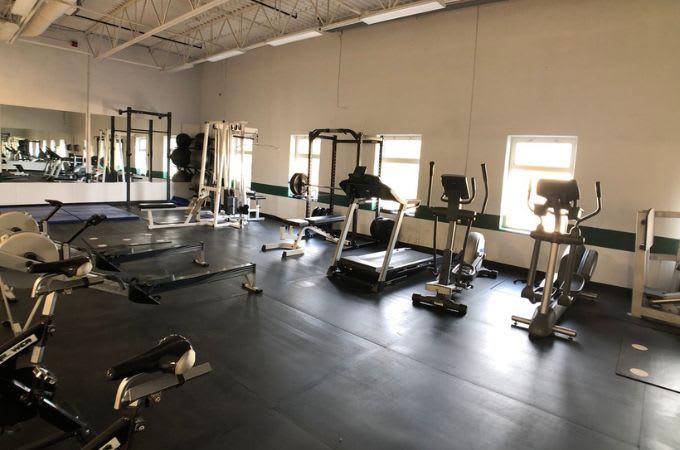
Exercise room




Students have access to quality art materials and instruction.


Our presentation centre supports plays but also improv classes.




Front profile of the school.

Birds eye view of the school building.
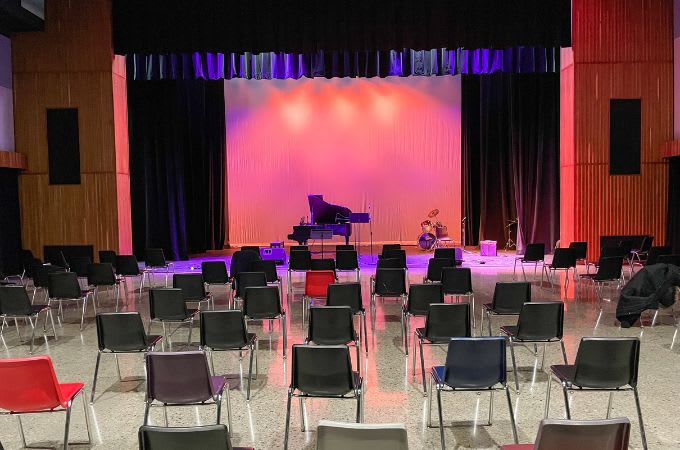
The performance centre is a unique multi-purpose space provides students with opportunities to build skills, confidence, and composure.




Teachers go out of their way to engage students in stimulating learning.

Working well with others is an important workplace skill. For many projects, presentations assignments, students work together. Through experience and with teacher guidance, students learn how to interact with peers to complete common tasks.

At TDChristian, we help students learn for service in the light of God’s Word through innovative and dynamic learning. Students are pushed to become discerning, learn ways to conduct themselves, and serve God and neighbours in an ever-changing world.




At TDChristian we have built large science rooms. Our large science rooms provide students easy access between desks, which promote theory learning, and laboratory tables, which foster experiential learning.
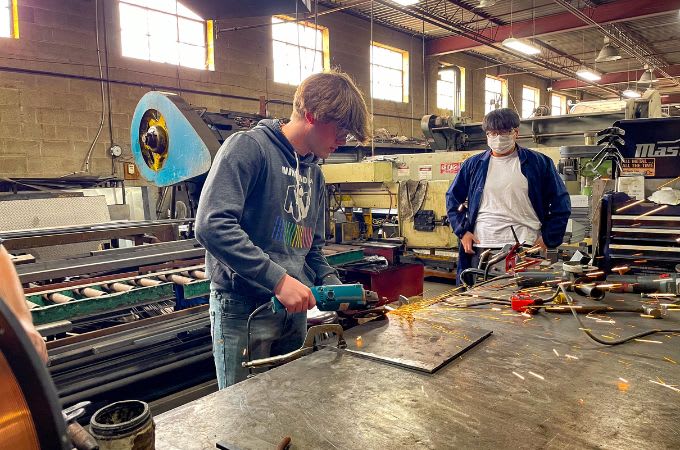
In our well-equipped STEM (Science, Engineering, Technology, Math) space, students solve problems through creating, designing, and building using cutting-edge technology in our Tech Tank and traditional tools in our shop area.

Students often solve problems in groups.




Students are equipped with individual MacBooks.
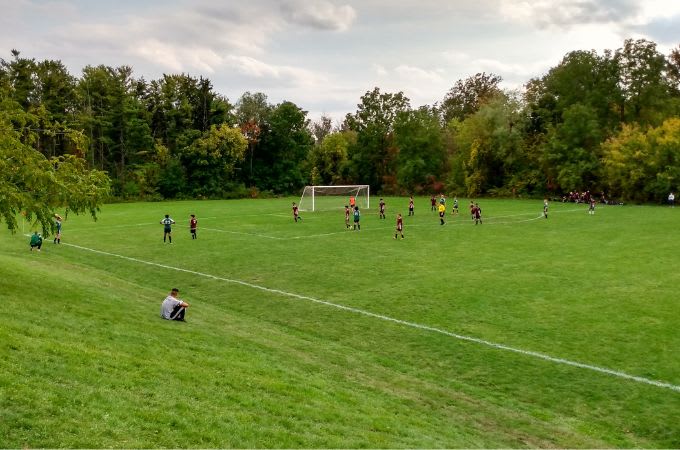
Our campus offers beautiful green space.


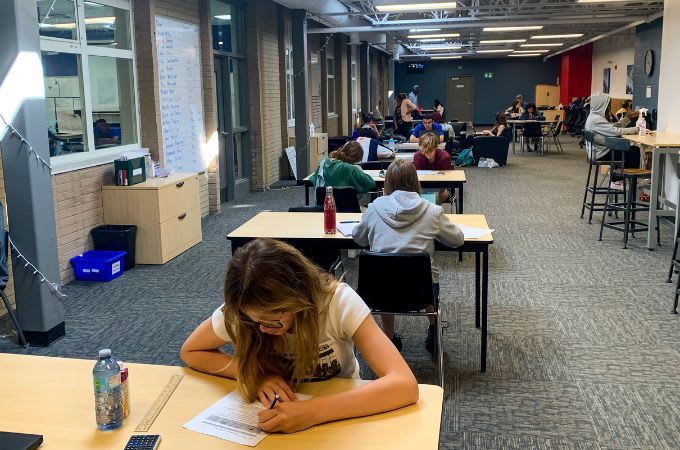
The Learning Commons was created to provide a space for all of our students’ various learning needs. Step inside to find a quiet and inviting environment.

The Commons is a great place to participate in assemblies or grab a bite to eat.

You may even find students playing foosball.





How people from the school’s community see Toronto District Christian High School
Top-down influence on the school’s direction and tone

William Groot, Principal
At TDChristian you'll hear the words enfold, engage, and empower a lot! But what do they mean? First, we enfold students, getting to know them for their unique personalities, talents, and ambitions, and helping them fit into our friendly community of learners. You're never just a number at our school. Next, we engage students with stimulating learning opportunities, academic rigour, and real world projects. Finally, we empower students to take control of their own learning and connect it with the larger world.
On top of that, every single subject is taught from a Christian perspective and we don't shy away from the big, important questions of life.
We invite you to discover our passionate, committed teachers, our one-of-a-kind programs, and our beautiful facilities today.
Come for a visit and a tour at anytime!
Most big schools provide your extroverted child with plenty of social opportunities and the ability to interact with different peer groups with a wide range of personalities, interests, values, etc. A larger student population and more extracurriculars—including activities like team sports, arts programs, and debate—will give them a broader scope of opportunities to participate in events that scratch their interpersonal itch. “This may also give them the opportunity to hone certain skills,” say Ann and Karen Wolff of Wolff Educational Services. “For instance, they might run for student council to develop leadership and public speaking skills and learn to be a voice for other students.”
Make sure any prospective school, no matter what size, provides the right social environment to help your child feel at home, make friends, and develop confidence. This is especially important at big schools, which are sometimes more socially overwhelming and challenging for an introvert to find their bearings in. Of course, “Because larger schools usually have a more diverse student population, introverted kids are more likely to find a small group of people like them, a peer group they can relate to and find acceptance from,” says Dona Matthews, Toronto-based education consultant and co-author (with Joanne Foster) of Beyond Intelligence.
Bigger schools often have a broader scope of extracurricular activities, which is another way to help your child meet the right group of friends. “This may also give them the opportunity to develop certain skills,” say Ann and Karen Wolff of Wolff Educational Services. “For instance, they might run for student council to develop leadership and public speaking skills and learn to be a voice for other students. Remember, though, each child is different—so what works for one may not work for another.”
THE OUR KIDS REPORT: Toronto District Christian High School
Next steps to continue your research:
Continue researching Toronto District Christian High School with OurKids.net, or visit school website.